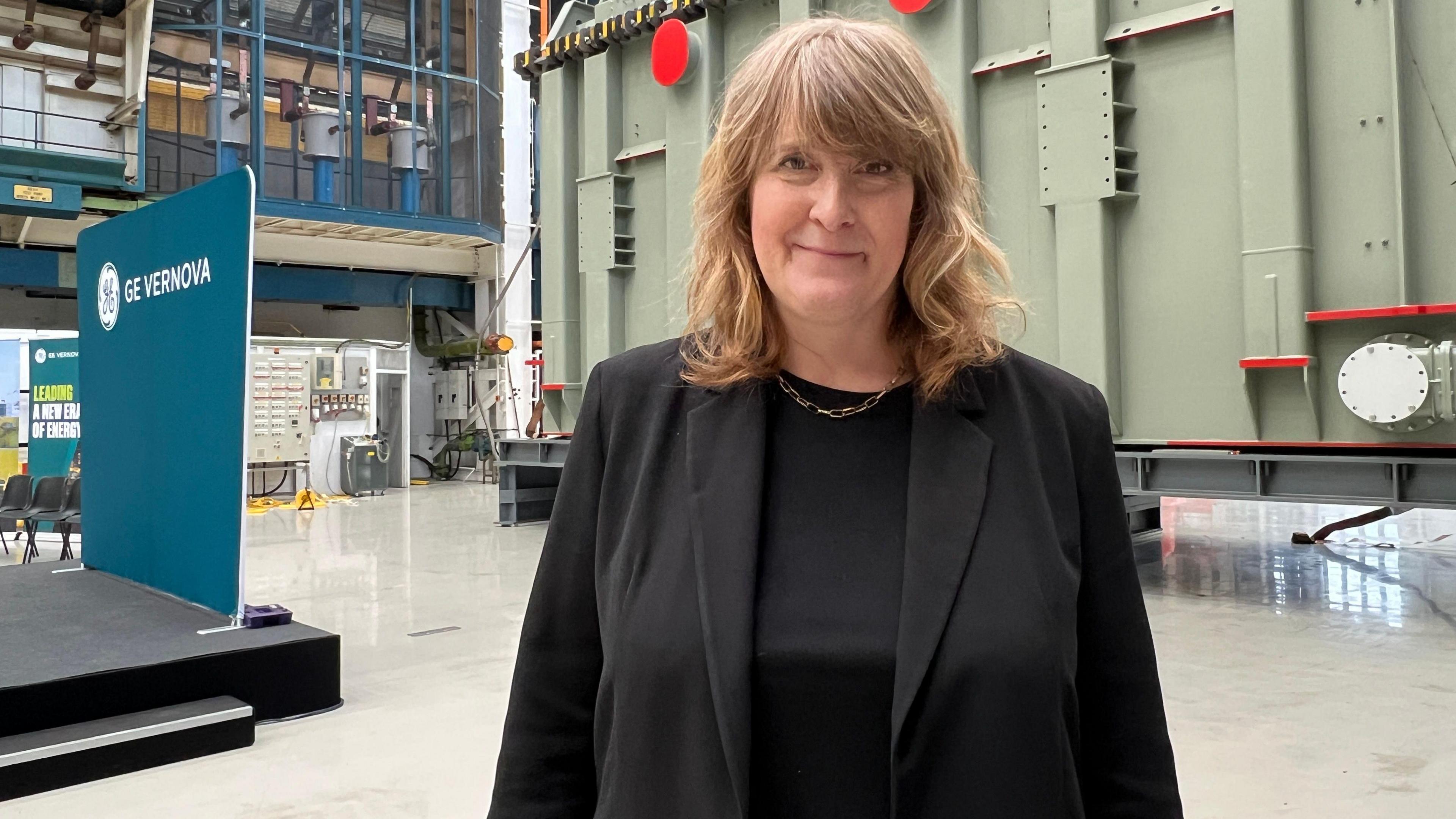How pottery sector reacted to industrial strategy
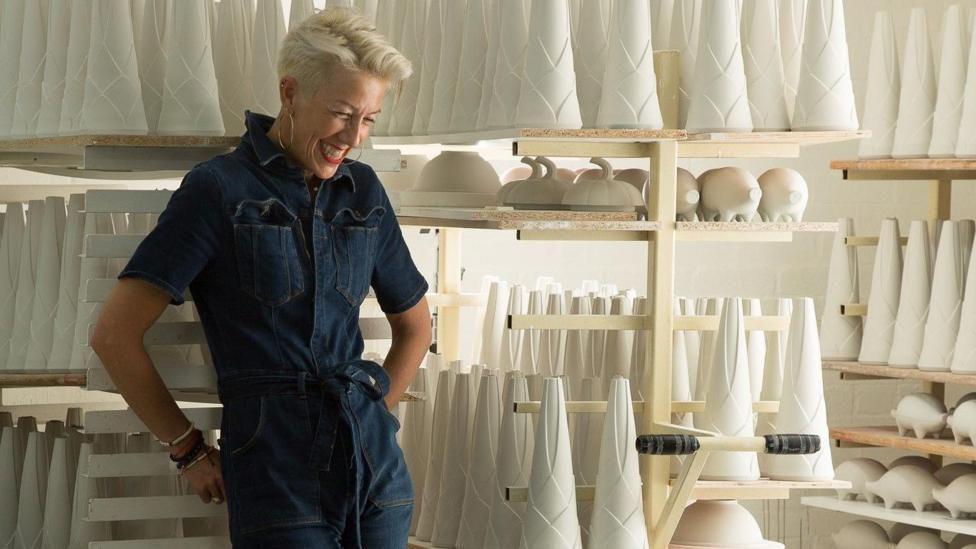
Fifth-generation ceramicist Emily Johnson described the strategy as "pathetic"
- Published
"Pathetic", "a missed opportunity", "a four out of 10 at best" – these were some of the phrases used by the pottery industry to describe the government's industrial strategy.
The 10-year plan announced on Monday confirmed 7,000 businesses would see electricity bills slashed by up to 25% from 2027, while 500 firms would get a 90% cut in network charges from 2026 under the British Industry Supercharger scheme.
While some in Stoke-on-Trent and Staffordshire – the heart of the UK ceramics industry – cautiously welcomed it as a "start", many have been left disappointed.
Business Secretary Jonathan Reynolds said the sector was "foundational" to the UK and would benefit from the measures.
Three firms in Stoke-on-Trent have collapsed since the start of 2025 – Royal Stafford, Heraldic Pottery and Moorcroft, though the latter was recently bought by the founder's grandson.
MPs, companies, workers and unions have been calling on the government to support the industry, which has become beset by rising energy prices and falling sales.
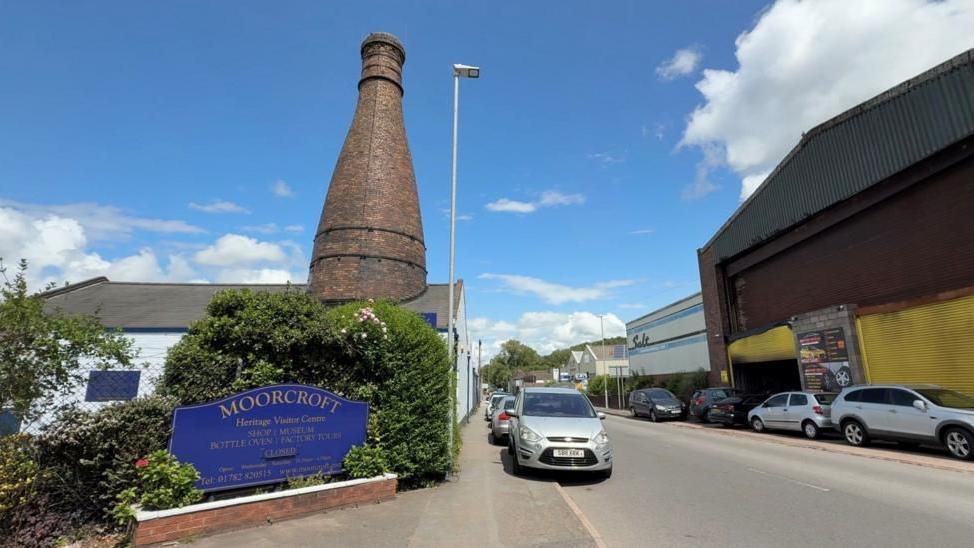
Moorcroft Pottery collapsed in April, leaving 57 employees out of work
After the spending review came and went, ministers including Ed Miliband said support would be revealed in the Industrial Strategy.
But following its announcement, many questioned why ceramics was barely mentioned in the document and wondered where the actions were regarding the cost of gas – the dominant energy source in the industry.
Trade association Ceramics UK accused the government of misleading and misunderstanding the sector.
Ceramics UK chief executive Rob Flello said: "This represents a missed opportunity to back one of the UK's most enduring and strategically important manufacturing industries."
Fifth-generation ceramicist Emily Johnson, owner of Barlaston-based 1882 Ltd, had previously described the industry as being "on its knees".
On the industrial strategy, she said: "Pathetic, is a word. I think that we've been let down again.
"But you know what, Stoke is resilient and we are not going to get the support that we need from them so we're just going to have to do it ourselves."
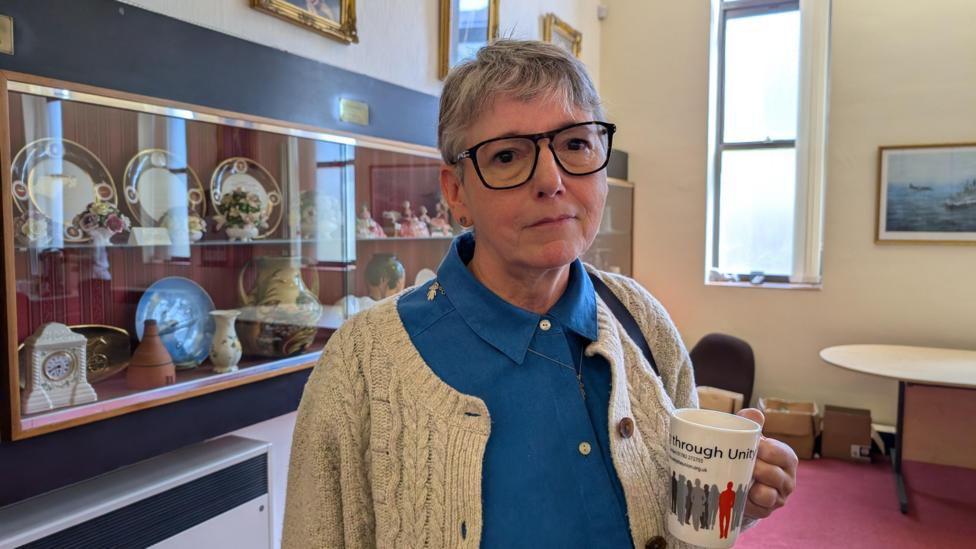
Ex-Moorcroft worker Beverley Berry said she was left "disappointed"
Beverley Berry was one of the 57 workers at Moorcroft who lost her job, and she has been campaigning for government help ever since.
She said she was left "disappointed" by the strategy and questioned whether it was all worth it.
"I feel quite pessimistic about it. When I first heard the news and thought it was imminent that we were going to help, I thought it wasn't all in vain," she added.
Rachel Laver, CEO of Staffordshire Chamber of Commerce, gave the strategy a "four out of 10 at best" and said businesses needed support "now".
"Stoke-on-Trent is only mentioned once on page 41 – that's it," she said. "If we were the steel industry, I think we would have had much more support thrown at us and we don't want to see more businesses go to the wall."
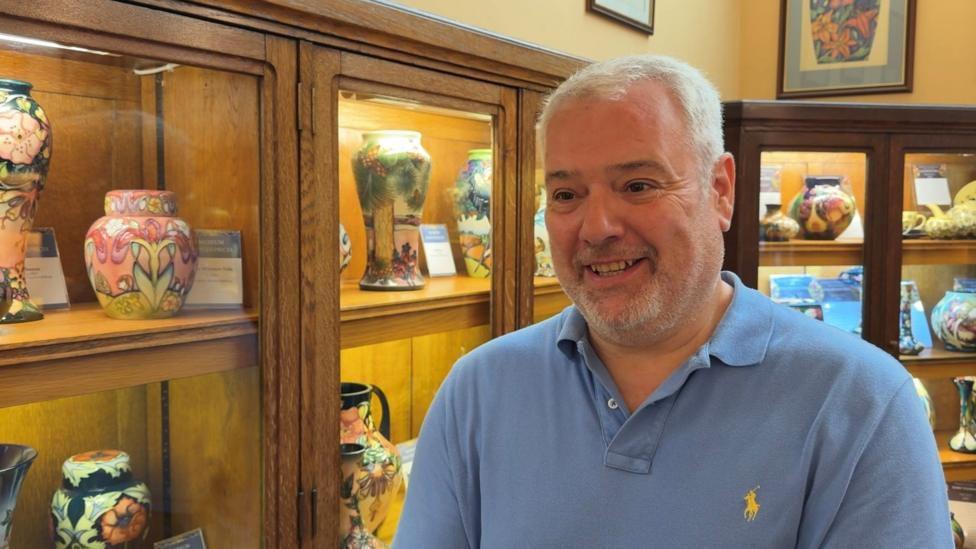
Will Moorcroft bought Moorcroft after the firm collapsed in April
There were those who were cautiously optimistic, including Portmeirion boss Mike Raybould, who said the measures were "a start" but called for faster action.
"It's good that they're recognising and finally talking about the UK ceramics industry," he told BBC Radio Stoke.
"But we need to see the detail, we need to see faster action and I suspect we probably need to see more support as well."
While the support with electricity bills was welcome, Mr Raybould said firms wanted to see support with gas prices too, describing it as the more "dominant" form of energy in the industry.
Moorcroft's new owner Will Moorcroft, grandson of founder William Moorcroft, also said the measures were "a start" but were unlikely to make a huge difference.
"There's still a lot of work to be done and, without getting political, there could be quicker decisions that could be made to help business, whether it's national insurance or business rates," he said.
'Foundational sector'
In his statement in the House of Commons, Reynolds said ceramics was "recognised as a foundational sector" in the strategy,
"Its principal request is about energy prices. There are some ceramics businesses - I accept not that many - that get the supercharger [discount] and will get the more generous rate."
He said, however, the costs of a lot of those businesses did not match the intensity test the supercharger discount was based on.
"That is exactly why the British industrial competitiveness scheme has been designed in such a way that they will benefit from it, and that will be a game-changer for them," he added.
On gas prices, he said they were projected to fall "from the very significant level that they have been at" in future financial years.
Get in touch
Tell us which stories we should cover in Staffordshire
Follow BBC Stoke & Staffordshire on BBC Sounds, Facebook, external, X, external and Instagram, external.
Related topics
- Published24 June
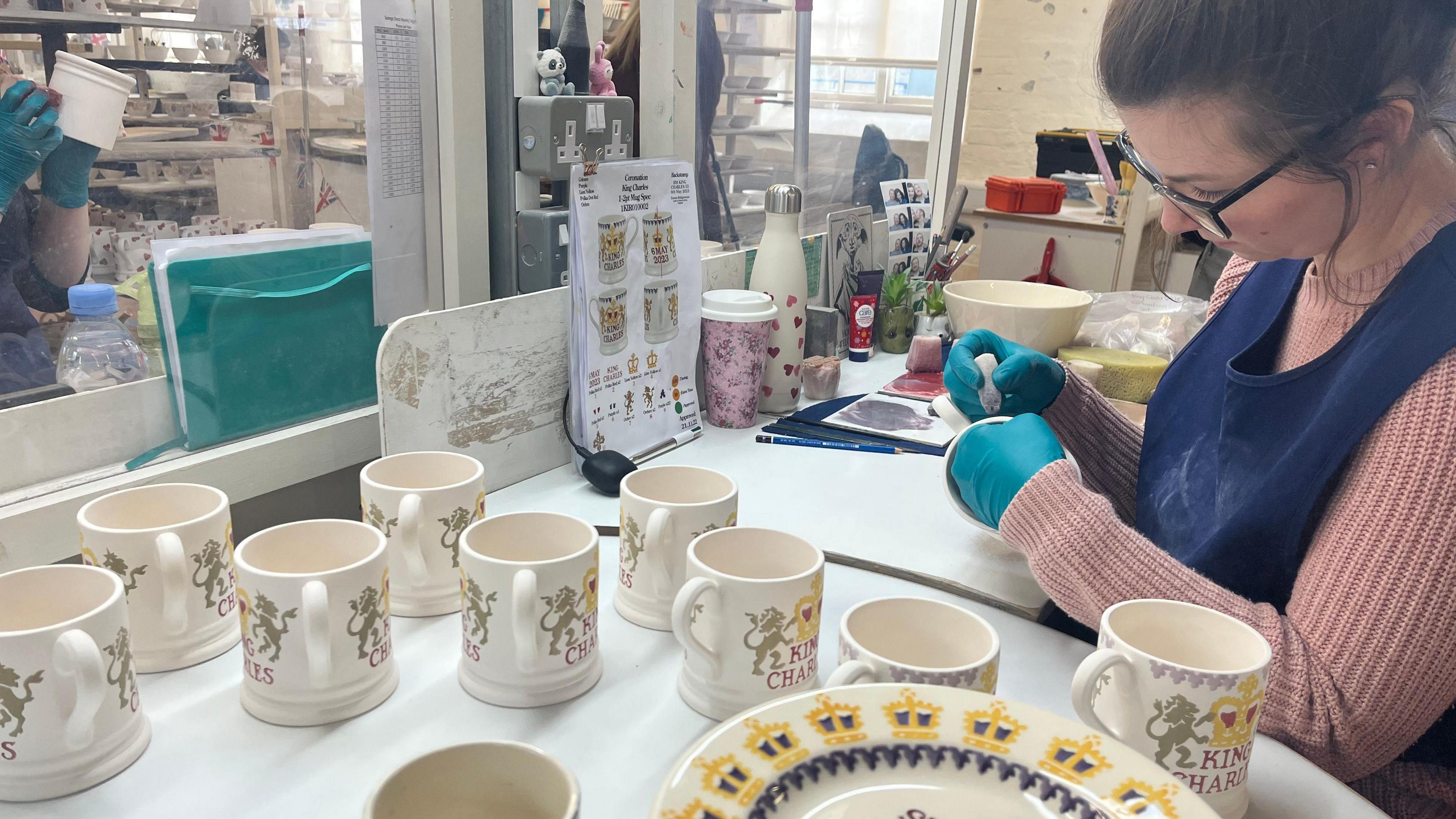
- Published23 June
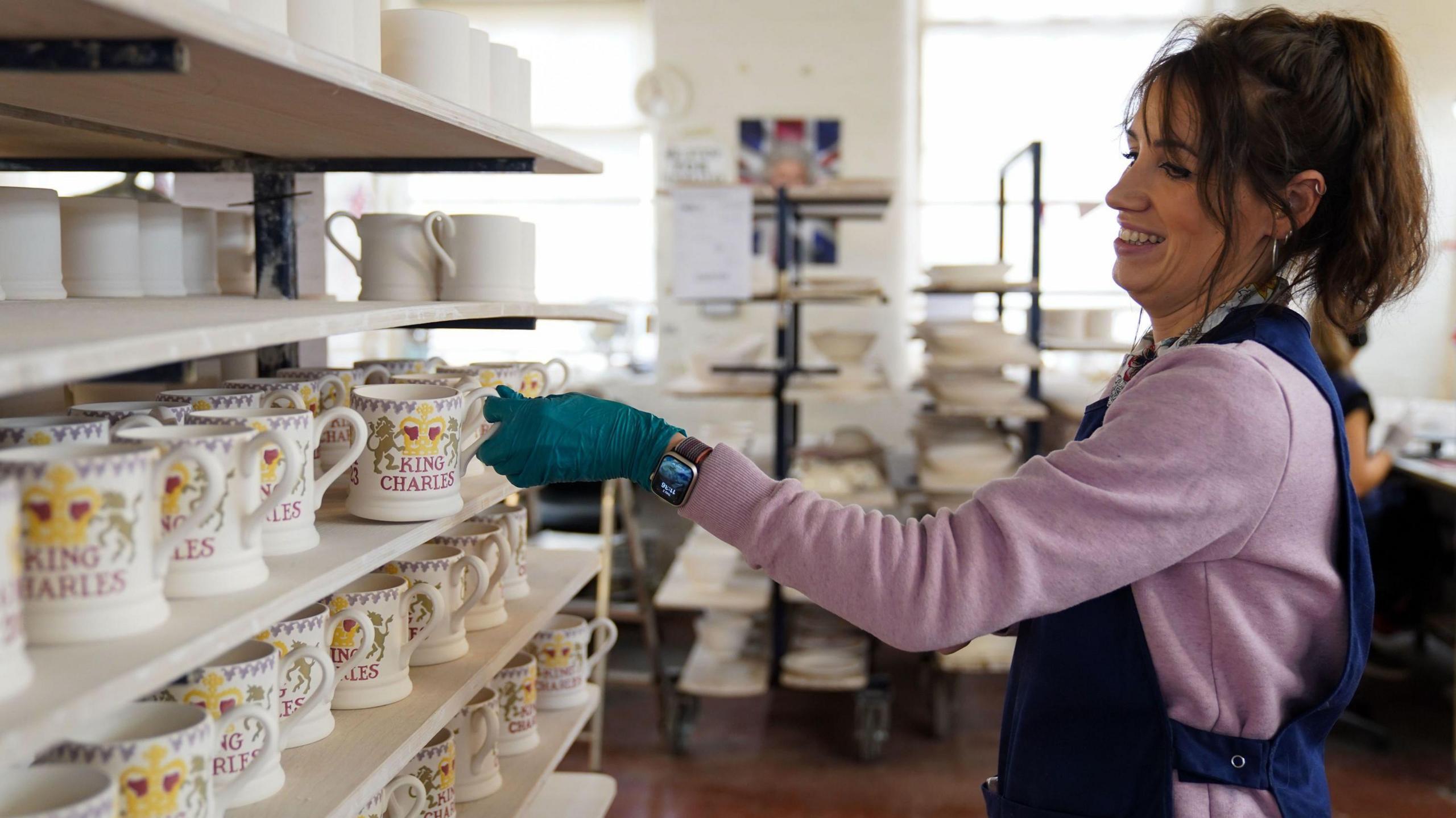
- Published23 June

- Published19 June
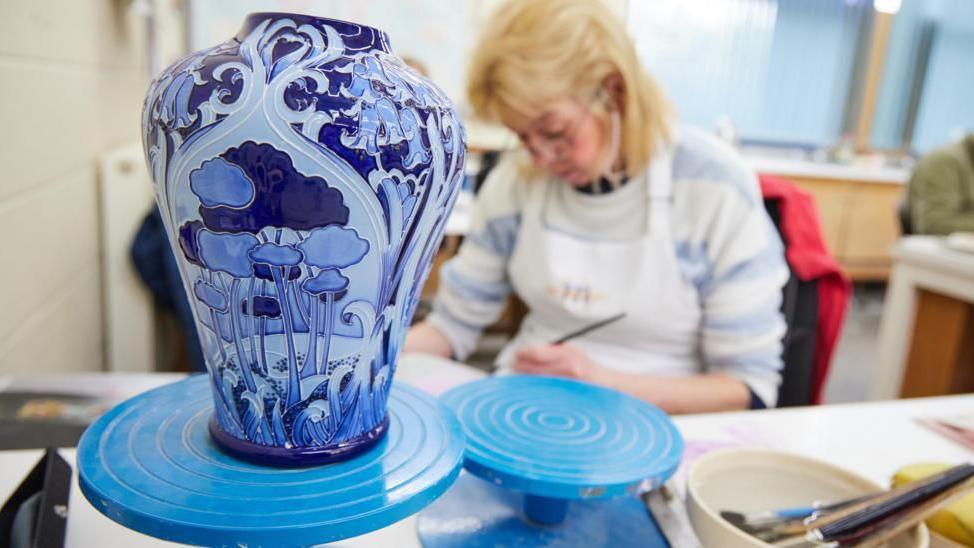
- Published12 June
